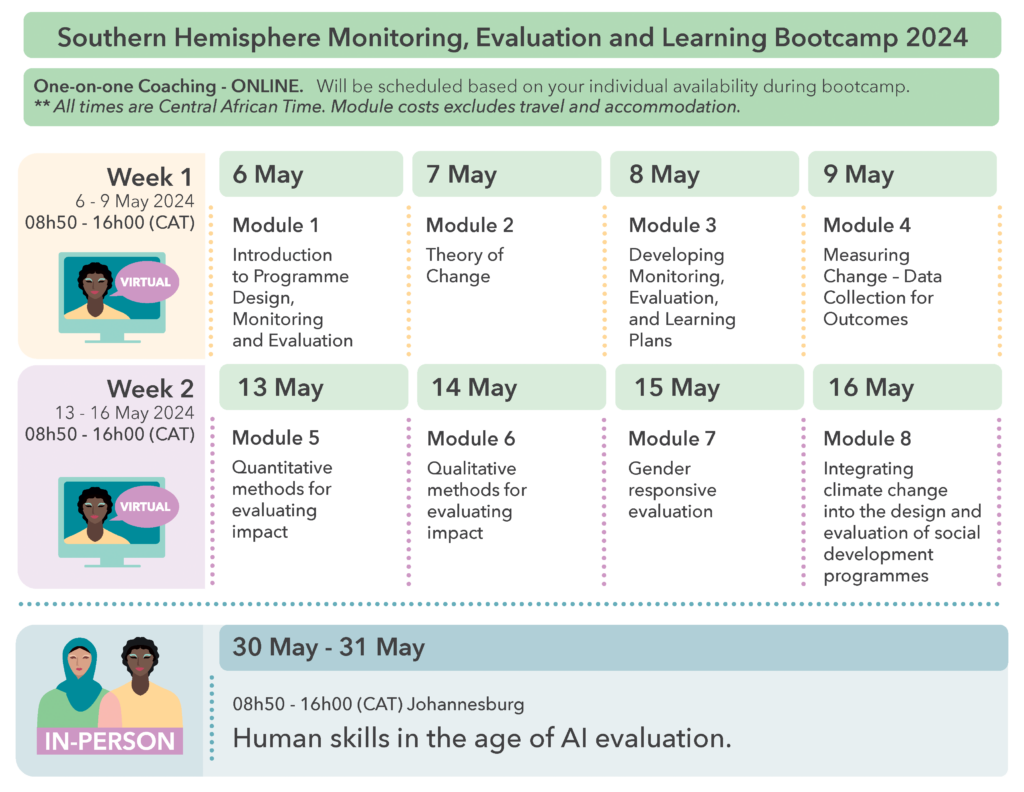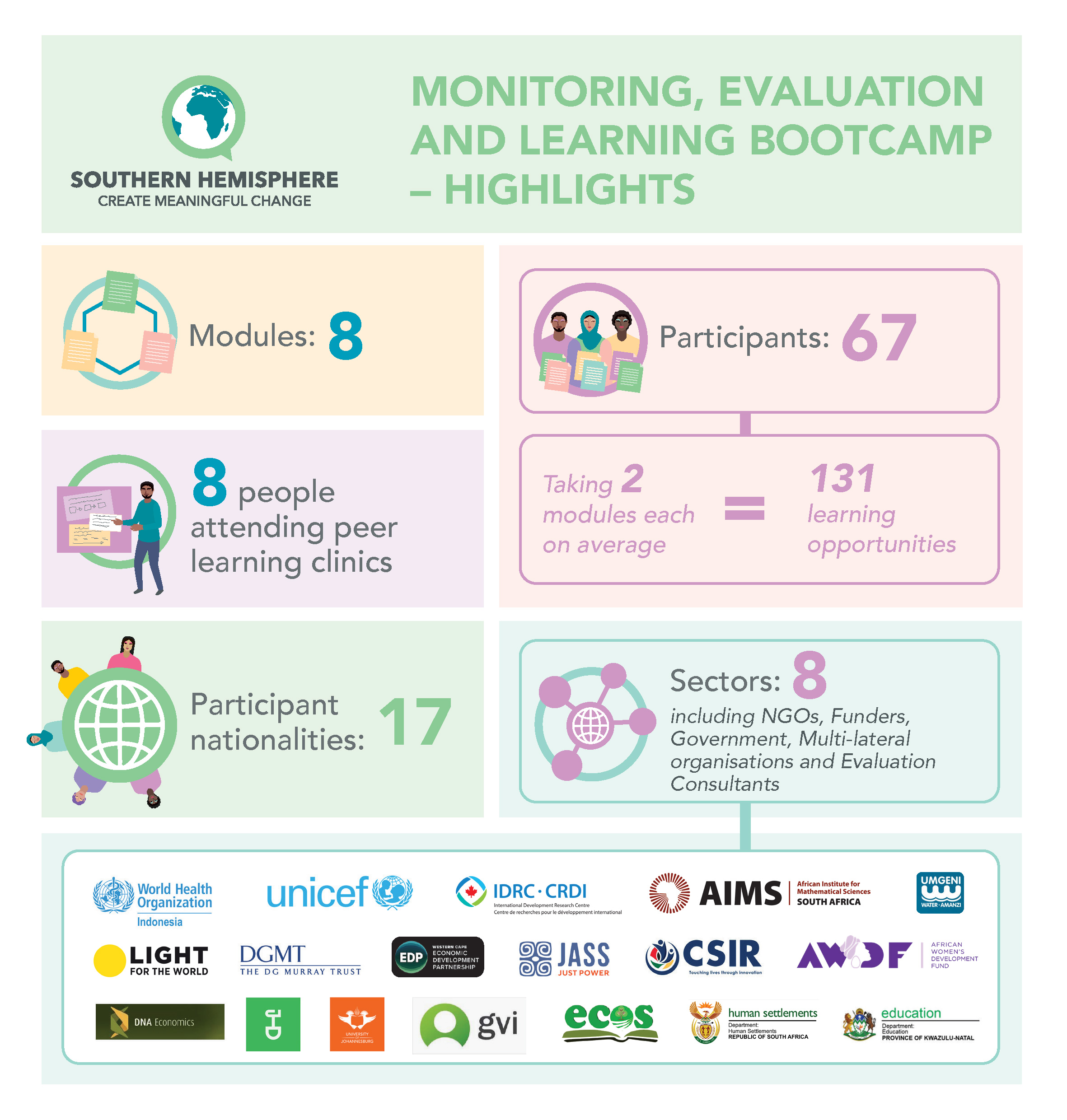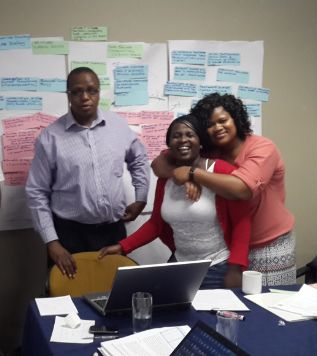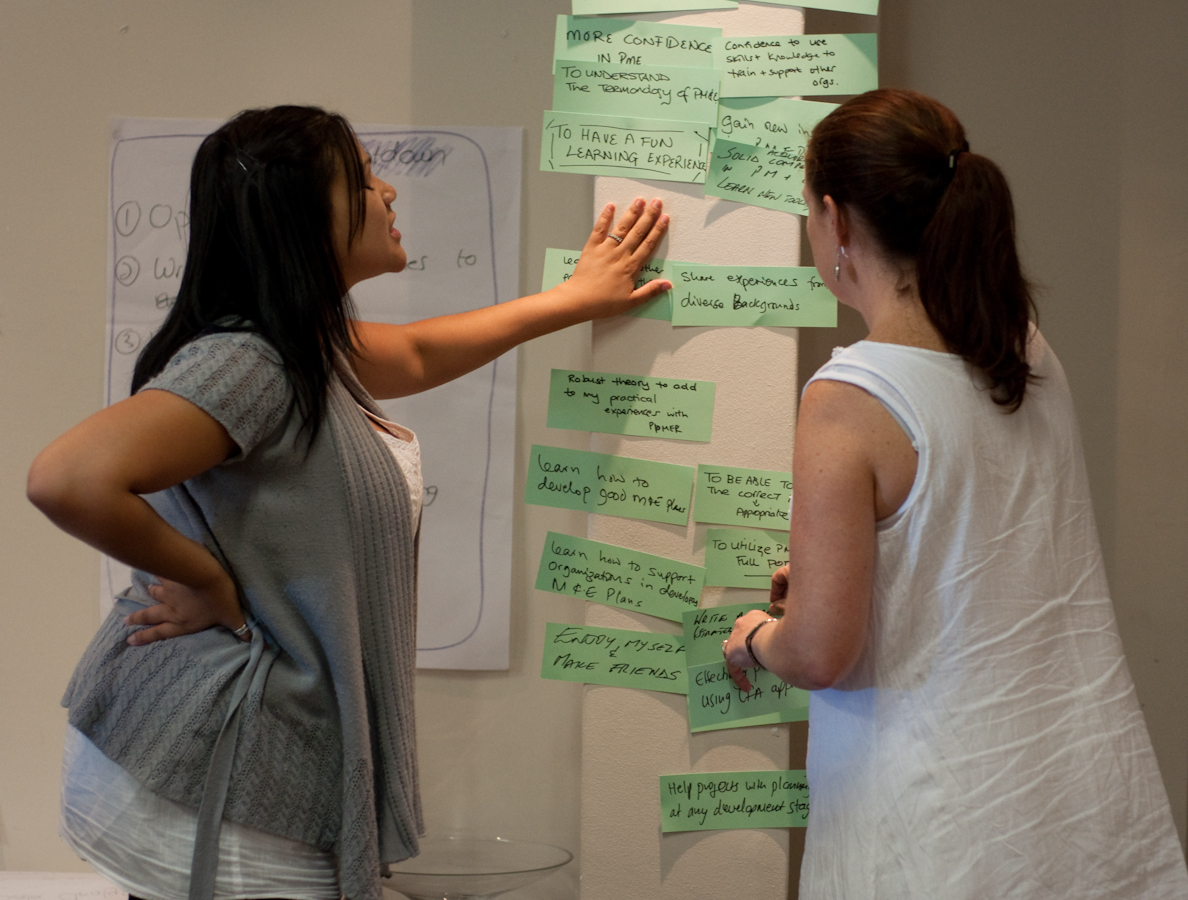Course description
The Monitoring, Evaluation, and Learning field is continuously advancing and it’s imperative to keep up with the movement. We’ve got just the tools and skills to help you do that.
From the curious novice to the more seasoned monitoring, evaluation, and learning (MEL) practitioner, our Bootcamp has a wide range of modules suited to your needs and level.
Course Level: Beginner – Intermediate – Advanced
Enjoy our VIRTUAL classes from the comfort of your own environment or join us for IN-PERSON training and coaching. Either way, you will benefit from an engaging and interactive session with your trainer and classmates as well as an opportunity to network.
Who is this for?
This course is for Monitoring, Evaluation, and Learning Practitioners/Consultants; Emerging Evaluators; Program managers or co-ordinators; Data collectors; Communications officers/managers; and Fundraisers.
It is targeted at people working in international development, government, or local non-governmental organisations or charities.
How will this help you?
- Practical and easy to implement tips and skills that will strengthen the impact of your projects
- Help you collect the most useful and insightful data, and learn from it
- Help you with the essential collation and reporting of project data for stakeholders, funders and beneficiaries
- Improve your career prospects with tangible skills
Our training allows you the flexibility to learn from an environment that works best for you with the benefit of engaging content, practical solutions and is engineered for active participation.
We have designed this Bootcamp to give you the best of virtual and face-to-face capacity building.
Our Bootcamp offers a modular learning approach that allows you to create your own learning journey and experience; bespoke to your needs. We have made this more affordable by giving you the opportunity to pick and pay for only the modules you choose! Choose from:
- personalized coaching session or to take deeper dives into specific topics of interest to you
- 8 online modules (see modules below)
- 2 day in-person training
Our trainers have over 150 collective years of training experience and have trained over 2,000 people in 23 different countries.
2024 Course Calendar

Individual coaching session – ONLINE
Module 1: Introduction to program design, monitoring, evaluation and learning (MEL)
Module 2: Theory of change
Module 3: Developing Monitoring, Evaluation, and Learning plans
Module 4: Measuring change – data collection for outcomes
Module 5: Quantitative Methods for Evaluating Impact
Module 6: Qualitative Methods for Evaluating Impact
Module 7: Gender responsive evaluation
Module 8: Integrating climate change into the design and evaluation of social development programs
Skills development workshop: 2-day In-Person session: Human skills in the age of AI evaluation.
Choose and pay for your selected training modules, and sign up for a one-on-one coaching session.
Your investment
Per module: R2 500.00 (USD 135.00) excluding VAT (VAT is charged at 15% for South Africans only)
| Rate per Module | Price EX VAT | USD$ | Deal summary/description |
| Individual coaching session – ONLINE | R 2 000,00 | $108 | 1 Hour – online |
| 1 Module/participant | R 2 500,00 | $135 | |
| 2 Modules | R 5 000,00 | $270 | |
| 3 Modules | R 6 375,00 | $339 | Buy 3 and save R1 125 (USD 66) |
| 4 Modules | R 8 500,00 | $452 | Buy 4 and save R1 500 (USD 88) |
| 5 Modules | R 10 000,00 | $529 | Buy 5 and save R2 500 (USD 147) |
| 6 Modules | R 12 500,00 | $664 | Buy 6 and save R2 500 (USD 147) |
| 7 Modules | R 14 500,00 | $769 | Buy 7 and save R3 000 (USD 176) |
| 8 Modules | R 15 000,00 | $787 | Buy 8 and save R5 000 (USD 294) |
| Skills development workshop: 2-day In-Person session: Human skills in the age of AI evaluation. | R 6 900,00 | $373 |
Discounts: An additional 10% discount will apply when registering for 3 or more modules for 3 or more participants, from the same organisation.
Prices exclude VAT (there is no VAT for entities outside of South Africa). Module costs excludes travel and accommodation.
Please contact Adéle at [email protected] for more information.






